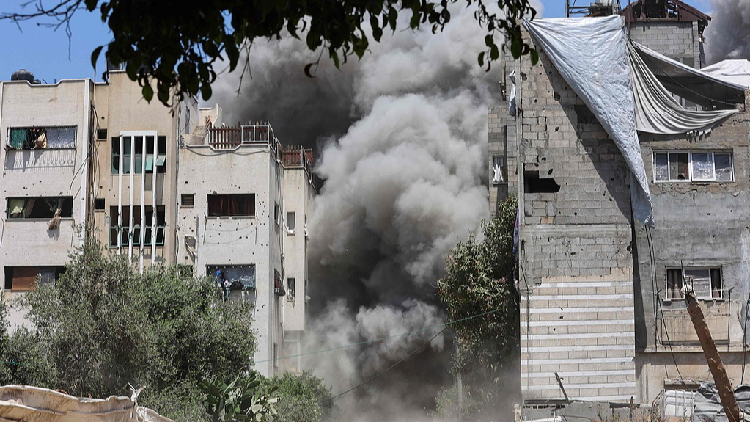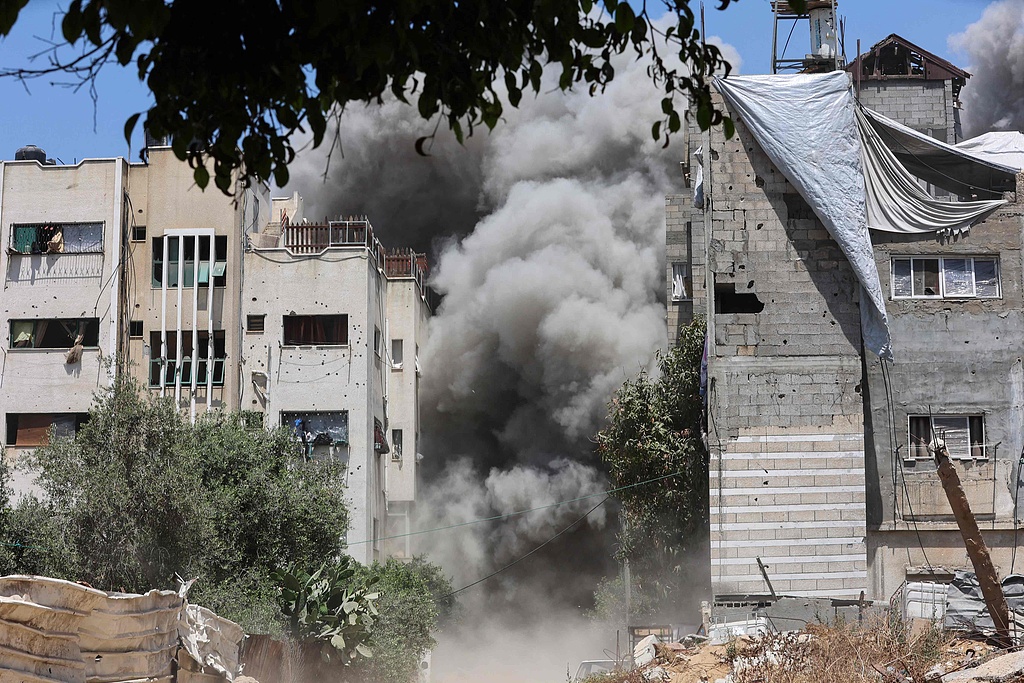Hamas Opposes U.S. Gaza Plan; Witkoff Labels Proposal as 'Unacceptable'
Hamas rejects U.S. ceasefire proposal, calling for amendments amid escalating Gaza tensions


Hamas announced on Saturday that it is seeking changes to a recent U.S.-backed ceasefire proposal for Gaza, igniting sharp criticism from U.S. special envoy Steve Witkoff, who dismissed the group's response as "totally unacceptable." The latest plan, which has received international attention, outlines a 60-day pause in hostilities, the release of 28 of the 58 remaining hostages held in Gaza, a prisoner exchange involving more than 1,200 Palestinians, and a substantial increase in humanitarian assistance to the besieged enclave.
The humanitarian crisis in Gaza continues to escalate. According to health authorities, 54,381 people have been killed and 124,054 injured since the start of Israel's military campaign on October 7, 2023. Since fighting resumed on March 18 after the collapse of a previous truce, the death toll has risen by 4,117, with 12,013 additional injuries reported.
Hamas is insisting on significant amendments to the current proposal, including the phased release of hostages over the 60 days of the truce, broader aid access across all areas of Gaza, and firm assurances that the deal will culminate in a permanent ceasefire. Israel, however, has categorically rejected these conditions. The Israeli government maintains its demand for Hamas’ disarmament, removal from authority, and the unconditional return of all remaining hostages.
Speaking after receiving Hamas' official response, Israeli Prime Minister Benjamin Netanyahu stated that his government had already accepted the broad outline proposed by Witkoff, but accused Hamas of ongoing rejectionism. “Israel will continue its action for the return of our hostages and the defeat of Hamas,” Netanyahu declared. In an online statement, Witkoff reinforced this stance, stating, “It is totally unacceptable and only takes us backward. Hamas should accept the framework proposal we put forward as the basis for proximity talks.”
In response to Witkoff's remarks, senior Hamas official Basem Naim denied that the group was refusing peace efforts, instead accusing Israel of distorting the terms of the original negotiation and charging Witkoff with “complete bias” in favor of Israeli interests. A formal statement from Hamas reiterated the group’s central demands: a permanent ceasefire, total Israeli withdrawal from Gaza, and the uninterrupted delivery of humanitarian relief. As part of their counterproposal, Hamas said it would release 10 living hostages and the remains of 18 others in exchange for an agreed-upon number of Palestinian prisoners.
The deteriorating situation on the ground places mounting pressure on all parties. Israeli state media have reported that the military is preparing to intensify its operations in northern Gaza following Hamas' rebuff of the proposed framework. On Friday, Israeli Defense Minister Israel Katz issued a stark ultimatum to Hamas: agree to the deal “or be destroyed.” In a further escalation, Israel’s military confirmed on Saturday the killing of Mohammed Sinwar, a top Hamas commander and leader of the group’s military wing, in an airstrike earlier this month.
The conflict’s previous ceasefire collapsed when Israel resumed military operations on March 18, after initially halting hostilities on January 19. In the lead-up to renewed combat, Israeli authorities closed border crossings and restricted humanitarian aid flows starting March 2. While limited access has been granted since May 22, the humanitarian situation remains dire, fueling urgent appeals for a sustainable resolution.




